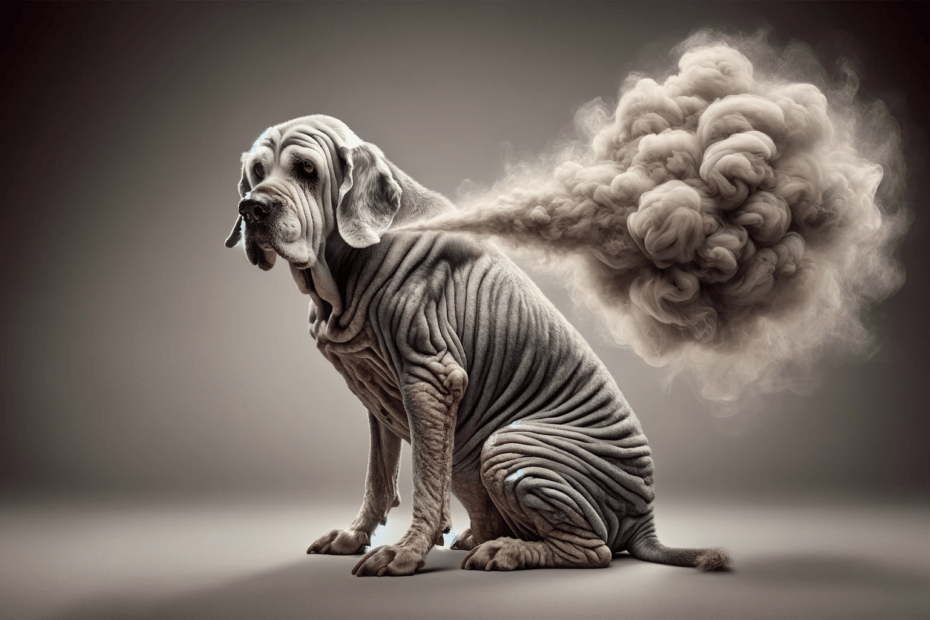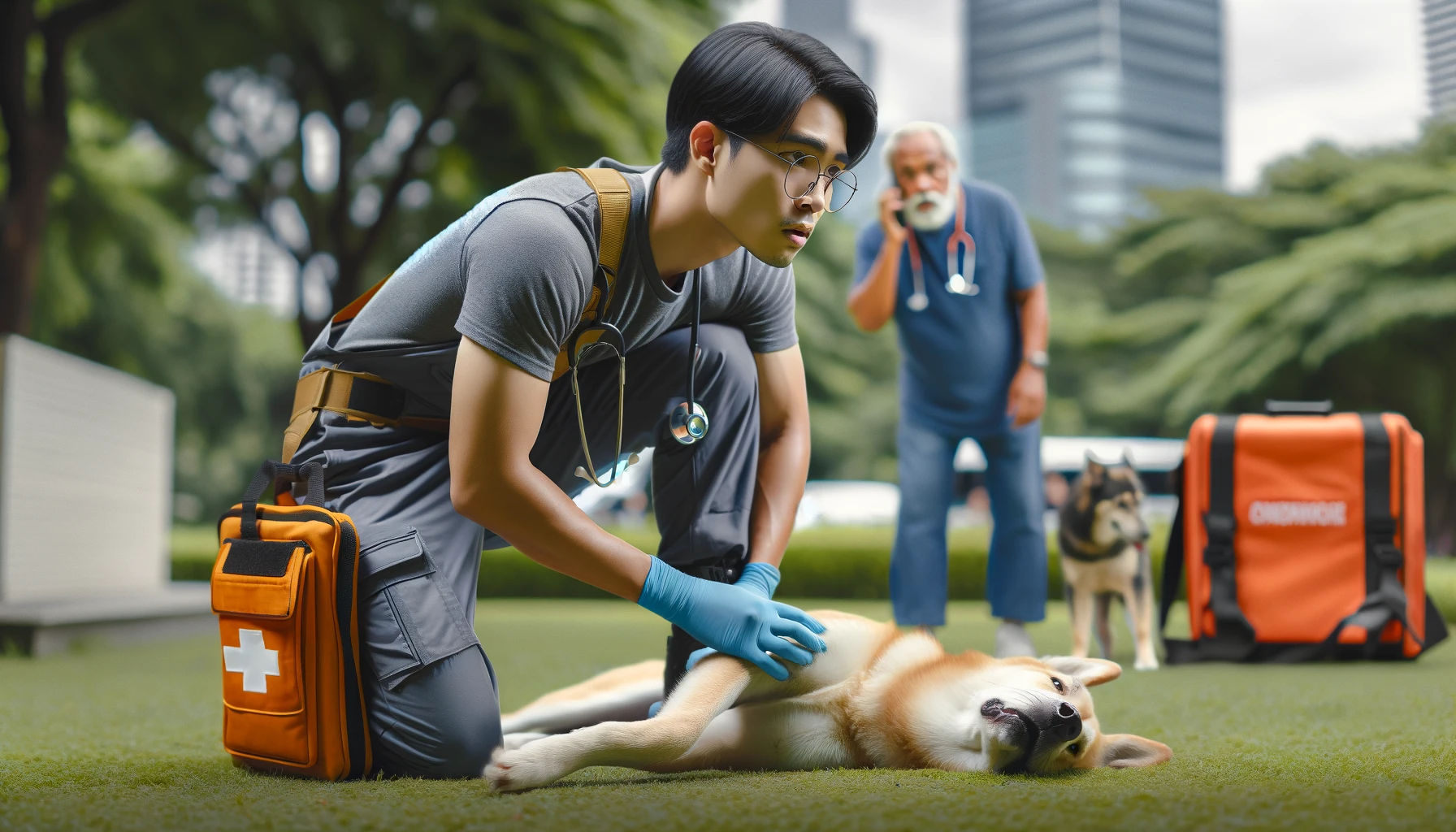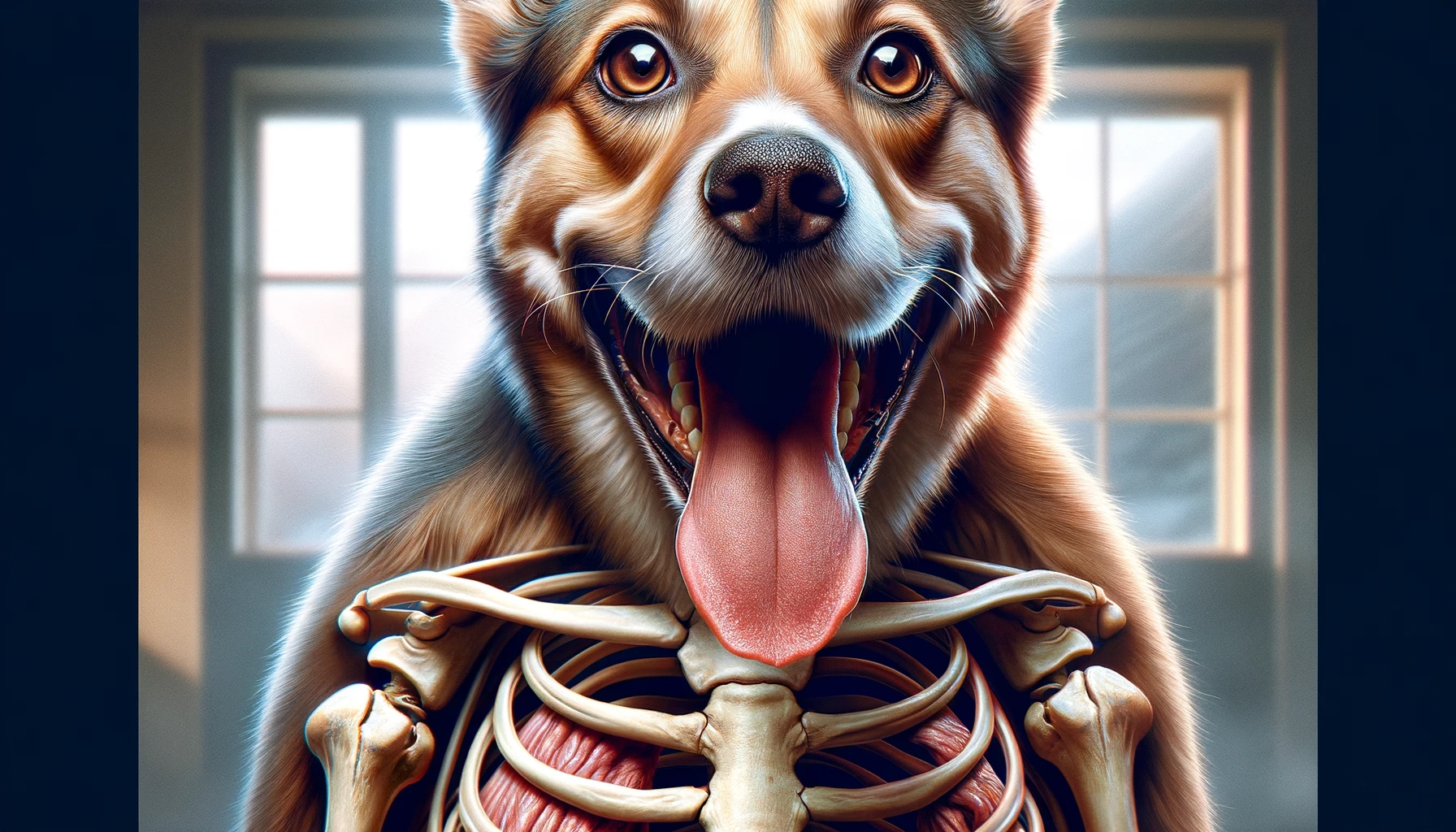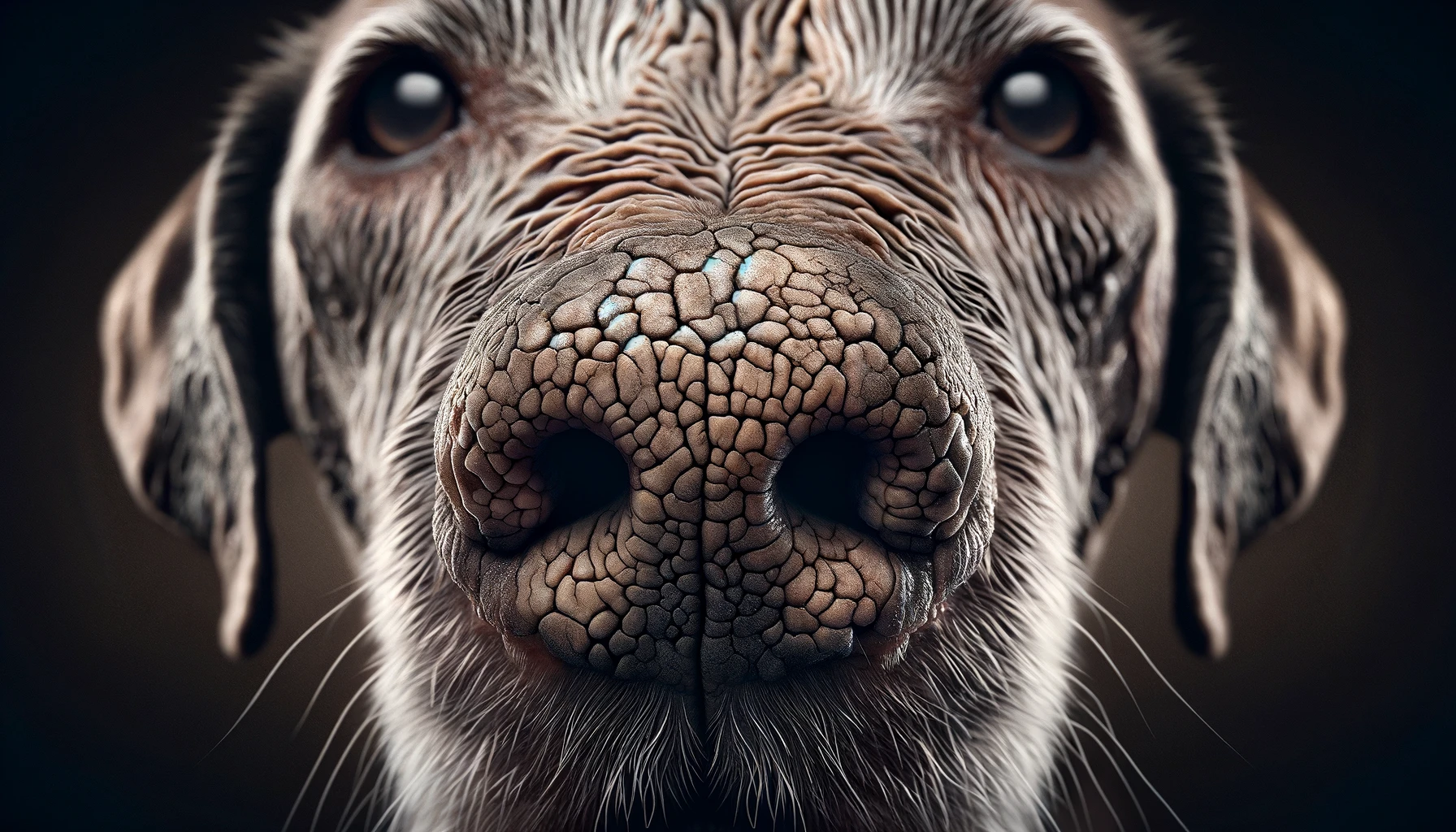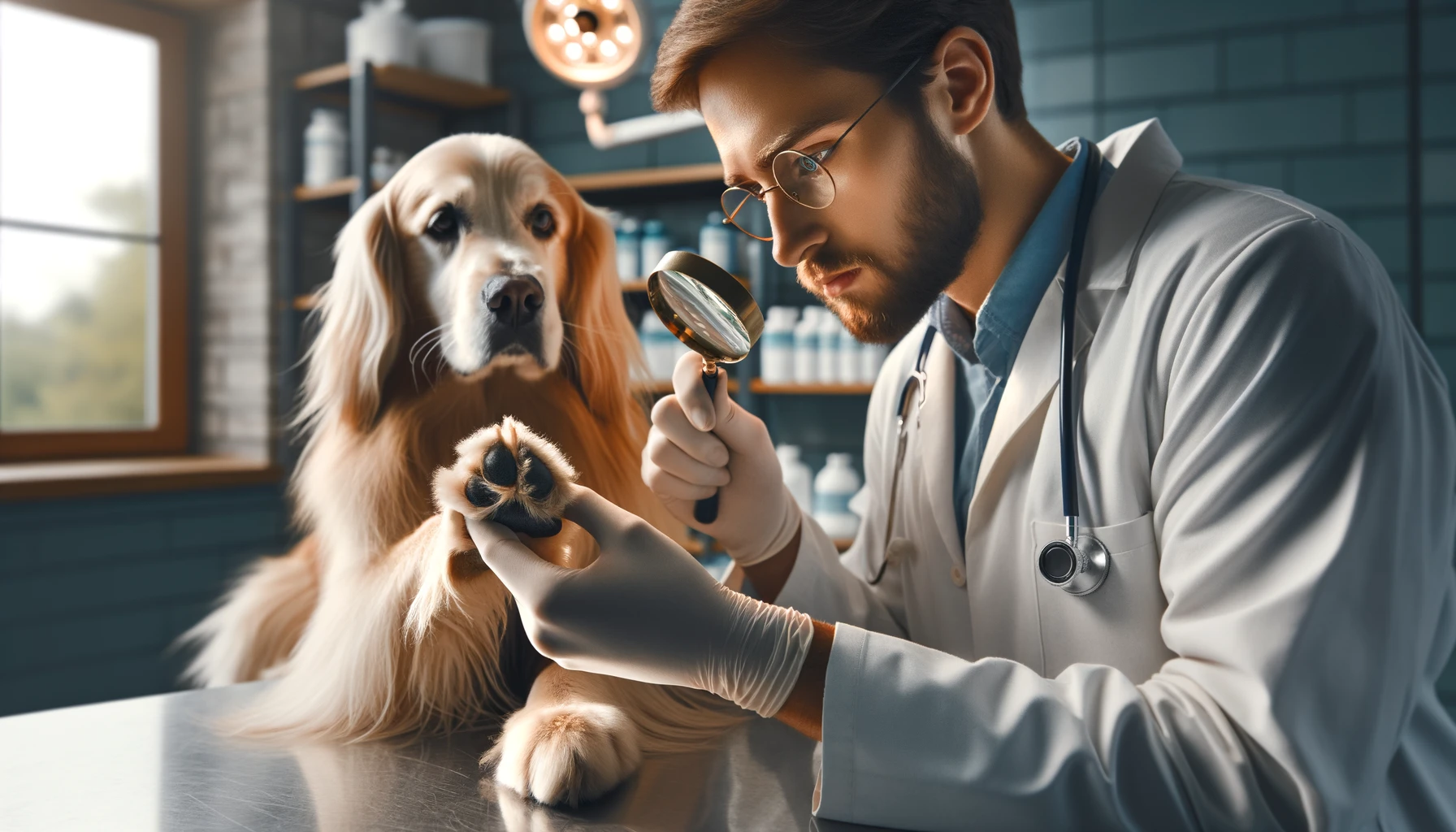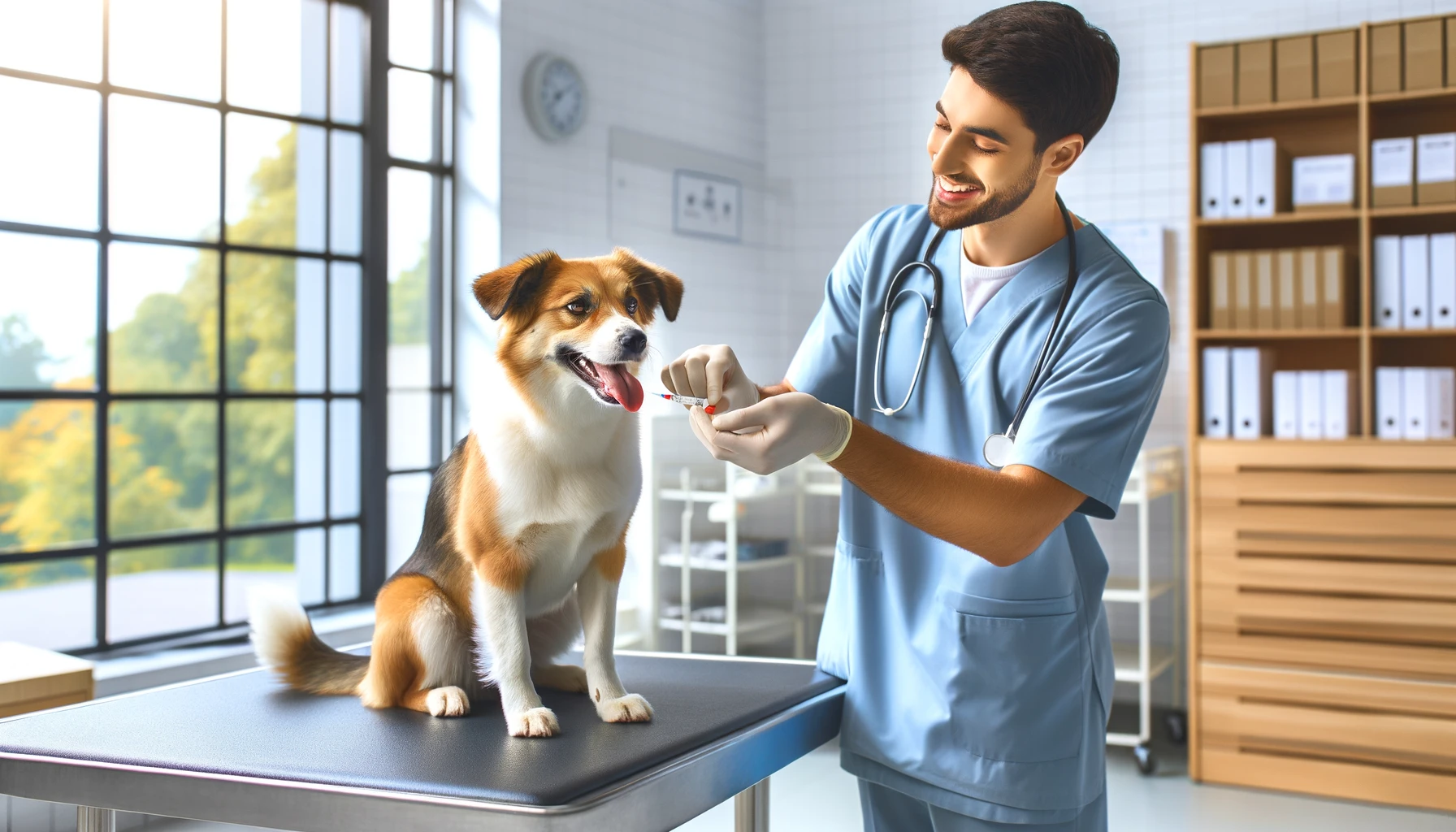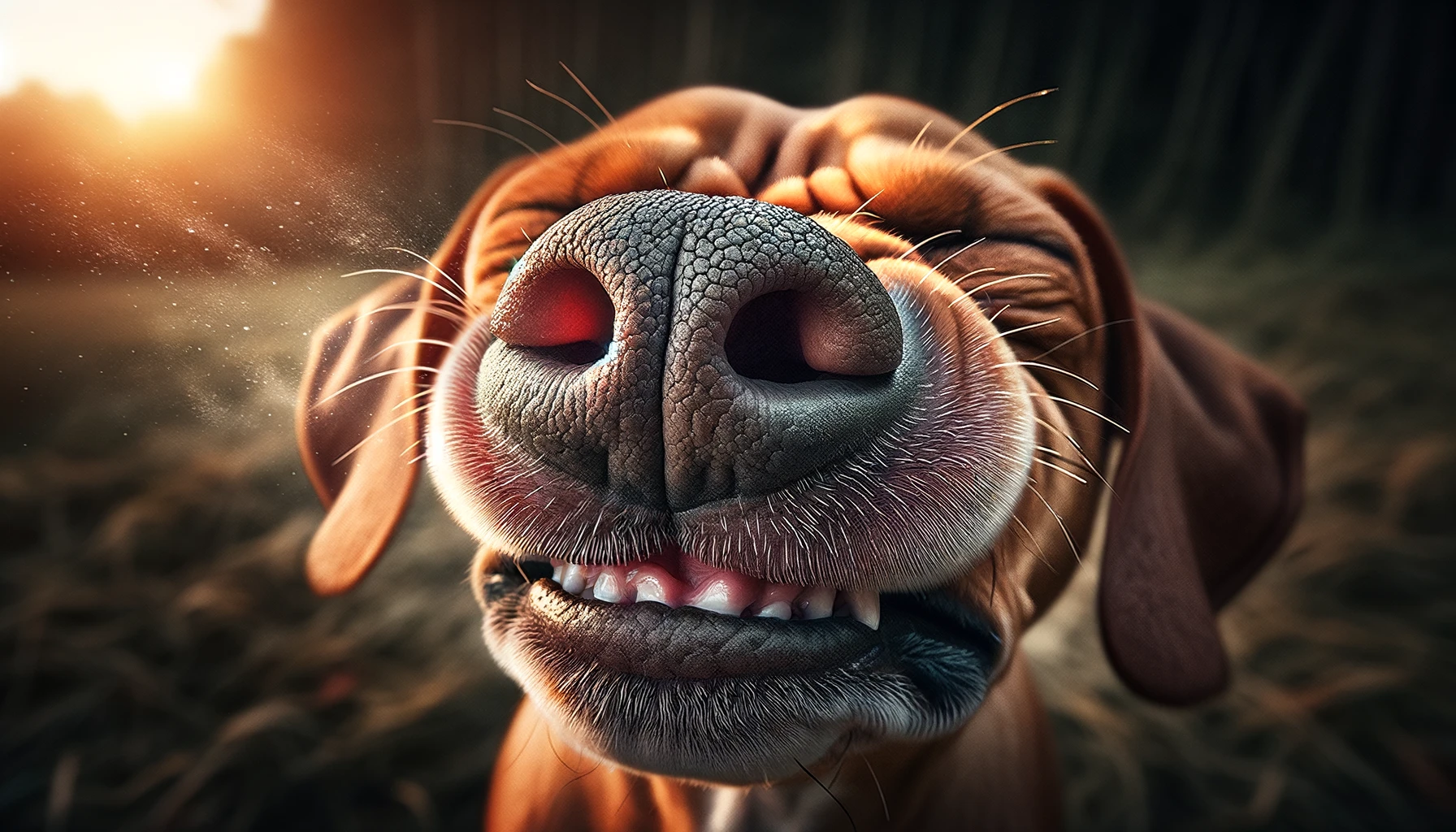In the aging process, dogs experience various changes in their bodies. These changes include their skin, oral health, urinary control, digestive system, and overall hygiene. These changes can contribute to an unpleasant odor that is commonly associated with older dogs.
This article aims to provide an analytical and evidence-based exploration of the factors that may cause this phenomenon. It will shed light on the biological, physiological, and environmental influences that contribute to why old dogs may emit a distinct odor.
Key Takeaways
- Aging dogs experience changes in their skin, such as thinner and less resilient skin, which can lead to the accumulation of bacteria and microorganisms, contributing to odor.
- Decreased sebum production in older dogs can result in drier skin and fur, and changes in the composition of natural oils produced by sebaceous glands may contribute to odor.
- Poor dental hygiene can lead to plaque and tartar buildup, gum disease, and tooth loss, all of which can affect breath odor. Regular dental care is important for managing this issue.
- Urinary incontinence and bladder control problems are common in older dogs and can contribute to odor due to weakened sphincter muscles and diminished bladder control. Treatment options should be discussed with a veterinarian.
Aging Process and Changes in the Skin
The aging process in dogs leads to significant changes in the skin, resulting in a distinct odor that can be attributed to various factors. As dogs age, their metabolism slows down, leading to changes in their body composition and overall physiology. These changes in metabolism can have a direct impact on the skin and its functions.
One of the key effects of the aging process on the skin is a decrease in collagen production. Collagen is a protein that provides structure and elasticity to the skin. As dogs age, the production of collagen decreases, leading to thinner and less resilient skin. This thinning of the skin can result in increased permeability, allowing for the accumulation of bacteria and other microorganisms, which can contribute to the distinct odor associated with aging dogs.
Additionally, the aging process also affects muscle mass in dogs. As dogs age, they may experience muscle wasting or atrophy, leading to a decrease in overall muscle mass. This loss of muscle mass can result in reduced mobility and exercise tolerance, leading to a more sedentary lifestyle. A lack of physical activity can contribute to the accumulation of oils and dead skin cells on the skin, further exacerbating the odor.
Natural Oils and Sebum Production
Aging dogs experience changes in natural oil production and sebum levels, which contribute to their distinct odor. As dogs age, their bodies undergo various physiological changes, including alterations in their skin and fur. One significant change is the decline in sebum production. Sebum, a waxy substance secreted by the sebaceous glands, plays a crucial role in moisturizing and protecting the skin and hair. It helps to maintain the skin’s natural barrier function and prevents excessive dryness. However, as dogs age, the production of sebum decreases, leading to drier skin and fur. This can result in a musty or unpleasant odor.
Furthermore, the composition of the natural oils produced by the sebaceous glands also changes with age. The balance of fatty acids and other components in the oils may be altered, leading to a different scent. Additionally, older dogs may have a higher concentration of certain compounds, such as volatile organic compounds (VOCs), which can contribute to a stronger odor.
It is important to note that while changes in natural oil production and sebum levels can contribute to the odor of aging dogs, other factors such as dental issues, urinary incontinence, or underlying health conditions may also play a role. Regular grooming and veterinary care can help manage these changes and minimize any unpleasant odors associated with aging.
Dental and Oral Health Issues
As dogs age, they may also experience dental and oral health issues that can contribute to their unpleasant odor. Dental hygiene plays a crucial role in maintaining overall health and preventing bad breath in dogs. Poor dental hygiene can lead to the buildup of plaque and tartar on the teeth, which can cause gum disease. Gum disease, also known as periodontal disease, is a common oral health problem in older dogs. It occurs when bacteria in the mouth form plaque, which then hardens into tartar and irritates the gums. This irritation can lead to inflammation, infection, and even tooth loss.
Gum disease not only affects the dog’s oral health but can also have systemic effects on their overall well-being. The bacteria from the infected gums can enter the bloodstream and spread to other organs, potentially causing serious health issues such as heart disease or kidney problems.
Regular dental care, including brushing your dog’s teeth, providing dental chews or toys, and scheduling professional dental cleanings with your veterinarian, can help prevent or manage dental and oral health issues. These measures can remove plaque and tartar, reduce the risk of gum disease, and improve your dog’s breath.
It is important to consult with your veterinarian to develop a dental care routine that suits your dog’s specific needs.
Urinary Incontinence and Bladder Control Problems
Urinary incontinence and bladder control problems are common issues that can affect older dogs.
There are several causes of incontinence in dogs, including hormonal imbalances, urinary tract infections, and weakened bladder muscles.
Fortunately, there are various treatment options available, such as medication, surgery, and lifestyle changes, that can help manage and improve bladder control in older dogs.
Causes of Incontinence
The underlying factors contributing to incontinence among older dogs include weakened sphincter muscles and diminished bladder control. These issues can lead to involuntary urine leakage, resulting in a foul odor. Weakened sphincter muscles may occur due to age-related muscle degeneration, hormonal imbalances, or neurological conditions. Diminished bladder control can be caused by conditions such as urinary tract infections, bladder stones, or bladder tumors.
To address the causes of odor associated with incontinence, it is important to treat the underlying issues. Treatment options may include medications to strengthen the sphincter muscles, hormone therapy to regulate hormonal imbalances, or surgery to address structural abnormalities. Additionally, managing any secondary infections or conditions, such as urinary tract infections, can help reduce odor.
It is crucial to consult with a veterinarian to accurately diagnose the specific cause of incontinence in older dogs and determine the most appropriate treatment plan to alleviate the symptoms and improve their quality of life.
Treatment Options Available
Addressing the underlying causes of incontinence and bladder control problems in older dogs involves implementing various treatment options. The effectiveness of these treatments varies depending on the specific condition and the severity of the symptoms.
One common approach is the use of medication, such as hormone replacement therapy or medications that strengthen the muscles of the bladder. These medications can help improve bladder control and reduce episodes of incontinence.
Additionally, behavioral modifications, such as scheduled bathroom breaks and positive reinforcement training, can be effective in managing bladder control problems. In some cases, alternative therapies like acupuncture or physical therapy may also be considered. However, it is important to note that the effectiveness of alternative therapies may vary and should be discussed with a veterinarian.
Ultimately, the most appropriate treatment option will depend on the individual dog and should be determined in consultation with a veterinarian.
Managing Bladder Control
To effectively manage bladder control problems in older dogs, implementing a comprehensive treatment plan is essential.
One potential approach is the use of Kegel exercises, which can help strengthen the muscles responsible for bladder control. These exercises involve contracting and relaxing the pelvic floor muscles, and can be performed with the guidance of a veterinarian or a professional dog trainer.
Another option is the use of medication to address the underlying causes of urinary incontinence. Medications such as phenylpropanolamine or hormone replacement therapy may be prescribed to manage bladder control problems in older dogs. However, it is important to note that medication options should always be discussed with a veterinarian, as they can have potential side effects or interactions with other medications.
Diet and Digestive System Changes
As dogs age, their diet and digestive system undergo changes that can contribute to unpleasant odors. Food sensitivities may develop, leading to digestive issues and an increase in body odor.
Additionally, the gut microbiome changes with age, potentially causing imbalances that can result in foul-smelling gas or stool. Digestive enzyme deficiencies may also occur, affecting the breakdown and absorption of nutrients and leading to odor-related issues.
Understanding and addressing these diet and digestive system changes can help manage and reduce the stinky smells associated with old dogs.
Food Sensitivities and Odor
Older dogs often experience changes in their digestive system and diet, which can contribute to the development of food sensitivities and unpleasant odor. As dogs age, their gastrointestinal system undergoes various changes, such as reduced enzyme production and decreased intestinal motility. These changes can result in a decreased ability to digest certain types of food, leading to food sensitivities.
Food sensitivities occur when a dog’s immune system reacts negatively to specific ingredients in their diet, triggering symptoms such as diarrhea, gas, and bloating. Additionally, the altered digestive system in older dogs can result in slower digestion and increased fermentation of food in the gut, leading to the production of foul-smelling gases.
Therefore, managing food sensitivities and maintaining a balanced diet tailored to an older dog’s needs can help reduce unpleasant odors.
Age-Related Gut Microbiome
Age-related changes in the gut microbiome and digestive system significantly impact the overall health and odor of older dogs. As dogs age, their gut microbiome undergoes alterations, leading to changes in their digestion and immunity. These changes can result in a variety of health issues, including age-related allergies and a decline in gut health.
The gut microbiome plays a crucial role in maintaining overall health by aiding in digestion, nutrient absorption, and immune system regulation. However, as dogs age, the diversity and abundance of beneficial gut bacteria tend to decrease, while harmful bacteria may proliferate. This imbalance in the gut microbiome can negatively affect digestion and nutrient absorption, leading to malnutrition and weight loss.
Furthermore, alterations in the gut microbiome can weaken the immune system, making older dogs more susceptible to age-related allergies. These allergies can manifest as skin irritations, itching, and unpleasant odors due to the body’s inflammatory response.
To maintain optimal gut health and immunity in older dogs, it is essential to provide a balanced and nutritious diet. Including prebiotics and probiotics in their diet can help promote the growth of beneficial gut bacteria, improve digestion, and support a healthy immune system. Regular veterinary check-ups and appropriate dietary adjustments can help manage age-related gut microbiome changes and minimize odor-related issues in older dogs.
Digestive Enzyme Deficiencies
What factors contribute to digestive enzyme deficiencies in aging dogs?
Aging dogs often experience changes in their digestive system, which can lead to digestive enzyme deficiencies. These deficiencies can be caused by various factors, including diet and digestive system changes.
One factor that can contribute to digestive enzyme deficiencies in aging dogs is the reduced production of digestive enzymes. As dogs age, their bodies may produce fewer enzymes, making it more difficult for them to break down and absorb nutrients from their food.
Another factor is dietary modifications. As dogs get older, their nutritional needs may change, requiring adjustments to their diet. However, certain dietary modifications may not provide the necessary enzymes for proper digestion. This can result in incomplete digestion and the production of foul-smelling gases.
To address digestive enzyme deficiencies in aging dogs, digestive enzyme supplements can be considered. These supplements contain a blend of enzymes that can aid in digestion and improve nutrient absorption. Additionally, providing a balanced and easily digestible diet can help support the digestive system of older dogs.
Environmental Factors and Hygiene Practices
One factor contributing to the unpleasant odor of older dogs is their exposure to environmental elements and the level of hygiene practices they receive. Environmental factors such as outdoor activities, contact with dirt, and exposure to various substances can all contribute to a dog’s odor. Dogs that spend a significant amount of time outside, exploring and rolling in the grass or dirt, may accumulate dirt, bacteria, and other odorous substances on their fur. Additionally, dogs that are regularly exposed to water, such as those who swim or play in wet environments, may develop a musty smell due to the growth of bacteria and yeast on their damp fur.
Furthermore, grooming practices play a crucial role in controlling a dog’s odor. Regular bathing, brushing, and grooming help remove dirt, debris, and dead hair, which can trap odors. Neglecting grooming practices can lead to the buildup of oils, dirt, and bacteria on a dog’s skin and coat, resulting in a strong and unpleasant smell.
To maintain a pleasant odor, it is important to ensure that older dogs are kept clean and dry, with regular grooming sessions that include brushing, bathing, and proper drying techniques. It is also essential to consider the use of appropriate shampoos and conditioners designed specifically for dogs, as human products can disrupt the natural balance of a dog’s skin and coat, leading to skin irritations and increased odor.
Frequently Asked Questions
How Can I Prevent My Old Dog From Developing Urinary Incontinence and Bladder Control Problems?
Preventing urinary incontinence and managing bladder control problems in older dogs requires a proactive approach. Regular veterinary check-ups can help identify any underlying medical conditions that may contribute to these issues.
Maintaining a healthy weight, providing consistent access to fresh water, and feeding a balanced diet can also promote bladder health. Additionally, engaging in regular exercise and ensuring frequent bathroom breaks can help strengthen the muscles involved in bladder control.
Consulting with a veterinarian can provide further guidance and tailored recommendations for your specific dog’s needs.
Are There Any Dietary Changes That Can Help Reduce the Stinky Odor in Old Dogs?
There are dietary supplements and natural remedies that may help reduce the stinky odor in old dogs. These options can address underlying health issues that may contribute to the odor, such as poor digestion or skin problems.
Incorporating omega-3 fatty acids, probiotics, and certain herbs into the dog’s diet can promote a healthier coat and skin, which may result in less odor.
However, it is important to consult with a veterinarian before making any dietary changes for an old dog.
What Are Some Effective Dental Care Practices to Maintain Oral Health in Aging Dogs?
Effective dental care is essential for maintaining oral health in aging dogs. As dogs age, they become more prone to dental issues such as gum disease, tooth decay, and bad breath.
Regular brushing of their teeth using dog-friendly toothpaste can help remove plaque and prevent tartar buildup. Additionally, providing them with dental chews or toys that promote chewing can help keep their teeth clean.
Regular dental check-ups with a veterinarian are also important to identify and address any dental problems early on.
Can Environmental Factors, Such as the Dog’s Living Conditions, Contribute to the Stinky Odor in Old Dogs?
Environmental factors, such as the dog’s living conditions, can indeed contribute to the stinky odor in old dogs. Poor hygiene practices and lack of odor control measures can exacerbate the problem.
A dirty living environment, infrequent bathing, and inadequate grooming can lead to the buildup of bacteria and dirt on the dog’s skin and coat, resulting in an unpleasant smell.
Regular bathing, brushing, and maintaining a clean living space are essential for managing the odor in old dogs.
Are There Any Grooming Techniques or Hygiene Practices That Can Help Reduce the Smell in Older Dogs?
Grooming techniques and hygiene practices can significantly help reduce the smell in older dogs. Regular bathing with appropriate dog shampoos can remove dirt, oils, and odor-causing bacteria from their fur. Additionally, brushing their coat regularly can help remove loose hair and prevent matting, which can trap odors.
Cleaning their ears and teeth regularly is also important, as infections or dental issues can contribute to unpleasant odors.
Conclusion
In conclusion, the stinkiness of old dogs can be attributed to various factors. These factors include changes in the aging process, decrease in natural oils and sebum production, dental and oral health issues, urinary incontinence and bladder control problems, diet and digestive system changes, as well as environmental factors and hygiene practices.
These factors can lead to unpleasant odors in older dogs, highlighting the importance of regular grooming, dental care, and overall health maintenance.
